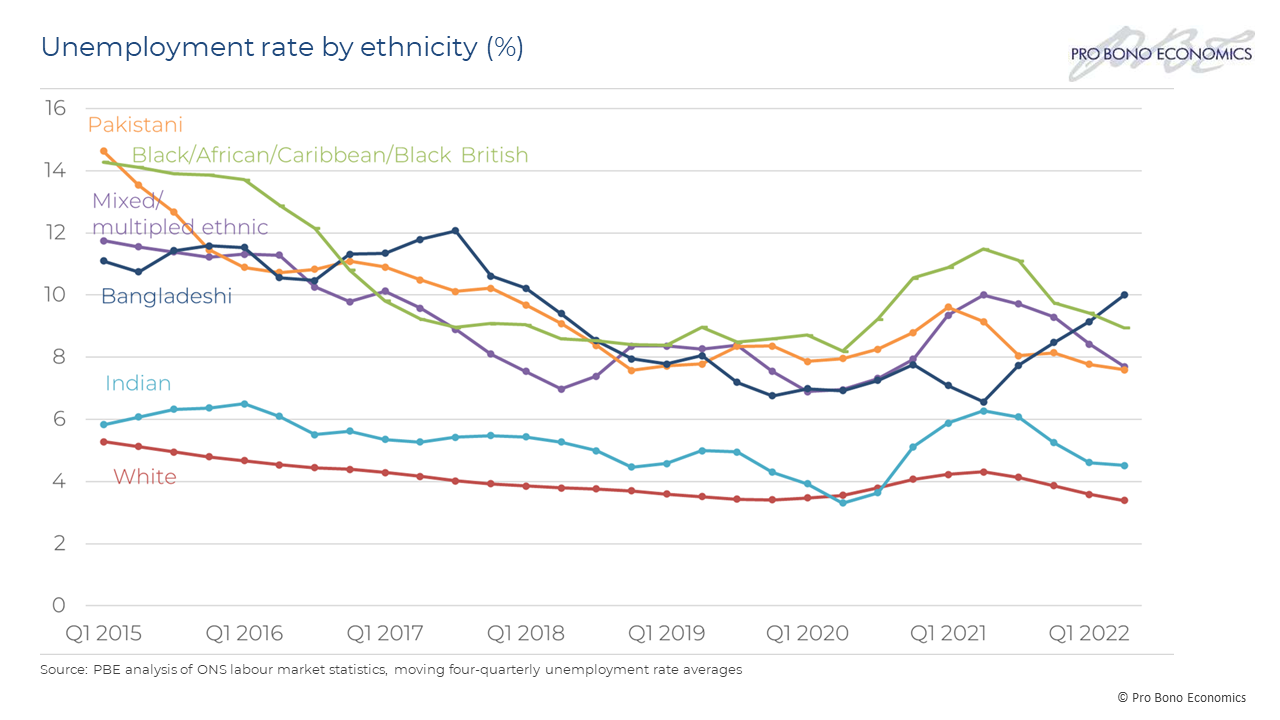
The employment gap between ethnic minority and white communities in England has widened significantly since the start of the pandemic, new analysis indicates.
A study by Pro Bono Economics (PBE) calculated average unemployment data between 2020 to date, comparing them to statistics from before the pandemic in 2018 and 2019.
The average unemployment rate among white people stands at 3.7 per cent from the pandemic to date – down slightly from 3.8 per cent prior to the virus outbreak, the charity’s analysis concluded.
In contrast, the rate of joblessness within Black communities is 9.6 per cent, compared to 8.5 per cent before Covid.
This denotes a 1.1 percentage point rise in unemployment over three years compared with 0.1 among white people.
Similarly, the unemployment rate for those from Pakistani and Bangladeshi backgrounds stands at 7.9 per cent and 8.5 per cent respectively – compared with 8 per cent and 7.4 per cent between 2018 – 2019.
Jansev Jemal, research and policy director at PBE, said: “With the very real prospect of a recession looming, there is a high risk these ethnic inequalities in the labour market will worsen. Concerted action to address these inequalities requires sustained policy focus from government.
“Policymakers and businesses alike would benefit from engagement with the many charities that provide vital support to ethnic minority communities, and can support employers to reach those furthest from the labour market.”
The charity warned that the way unemployment data is collated risks masking “concerning inequalities in the labour market”.

While data from quarter to quarter provides a shorter time frame within which to see what’s going on, a longer one can provide a more reliable picture of overall trends, which is why the charity calculated the unemployment data based on averages.
Nearly a third of Black Londoners (31 per cent) and a quarter of Asian Londoners are financially struggling as the cost of living crisis bites, fresh data from City Hall revealed last week. This is compared with a 20 per cent national average of households who are struggling with money.
Some four in five Black households have less than £1,500 in savings, data from the Labour Party has highlighted, while Black, Bangladeshi and Pakistani households in the UK are up to four times more likely to suffer from food insecurity than the national average.
Job vacancies stand at 1.3 million and, at 3.7 per cent, according to ONS data, which is as high as it was in July-September of 1974 – almost 50 years ago.







